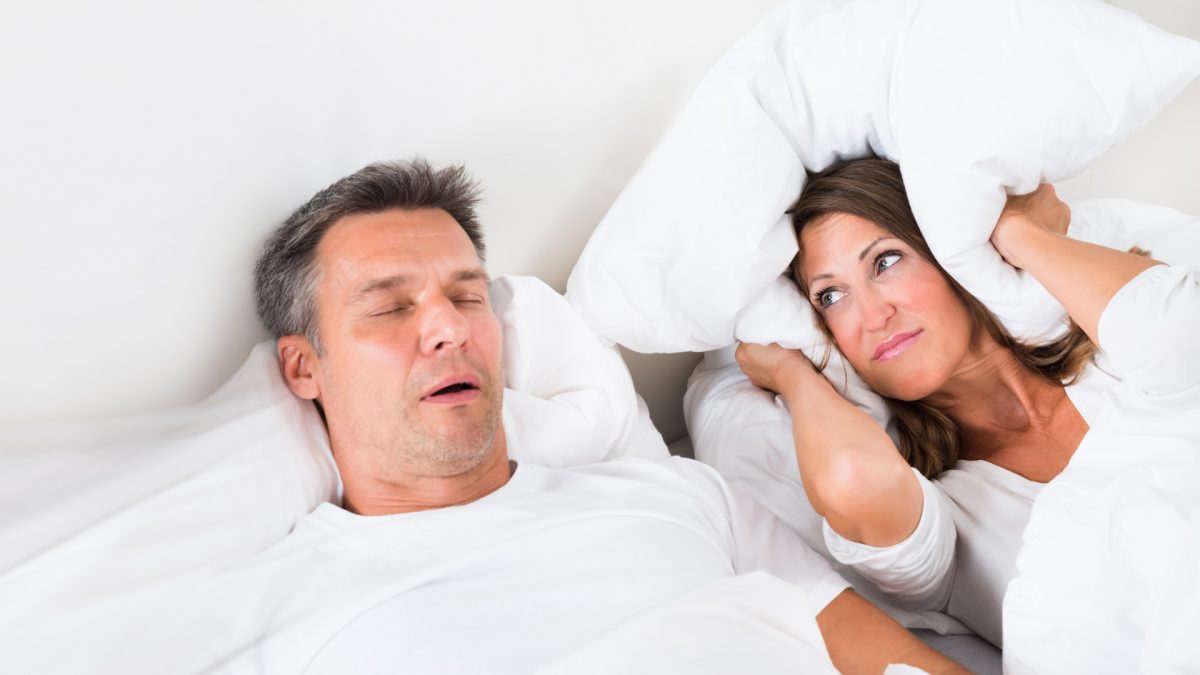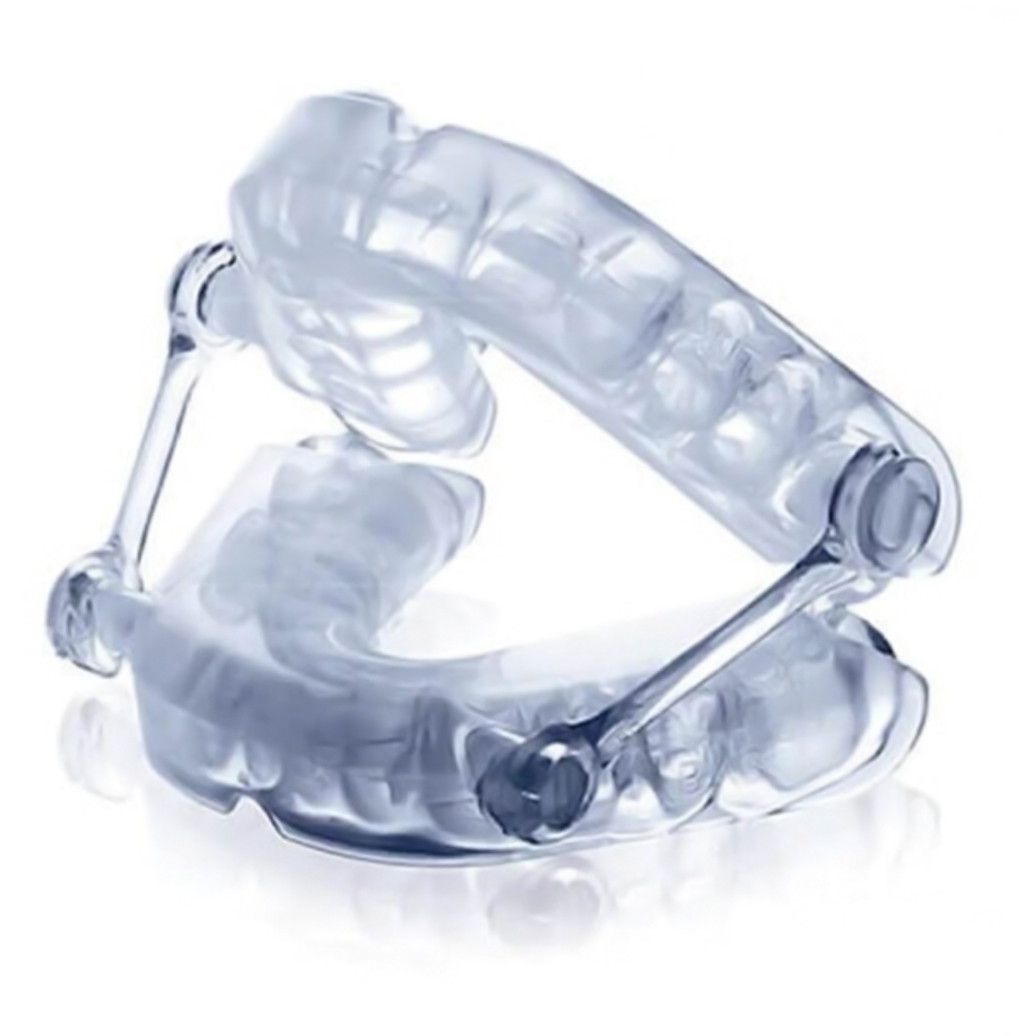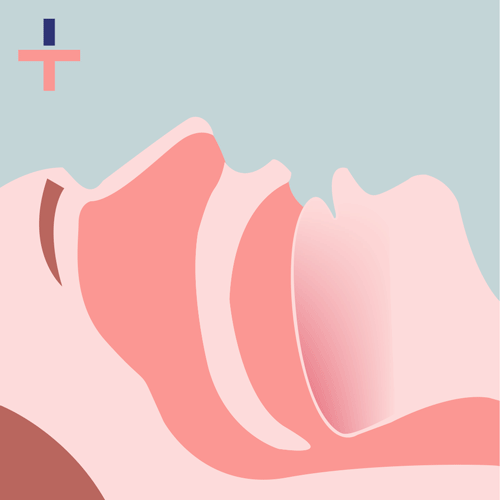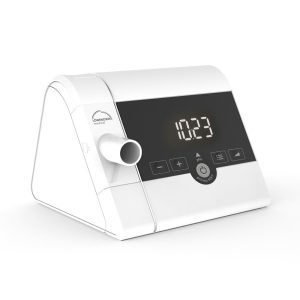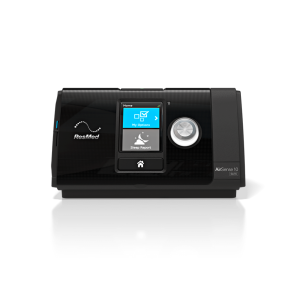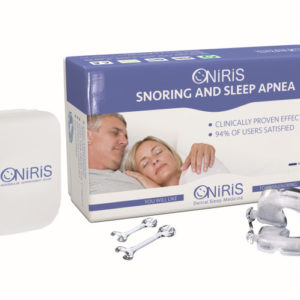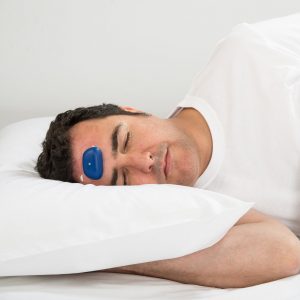Fact Checked
Intus Healthcare’s writers, customer service team, and sleep experts review and ensure this information is accurate.
Last updated on March 21st, 2024 at 03:11 pm
Why am I waking up choking?
Choking in sleep or waking up choking is a symptom of the sleep disorder Obstructive Sleep Apnoea (OSA).
We explain all you need to know about what causes choking during sleep, potential remedies and what to do if you think you may have a sleep disorder.
Table of Contents
What does choking in sleep feel like?
Choking in your sleep may feel like a sensation of not being able to breathe or like something is blocking your airway. You may also experience coughing, gagging or choking on saliva, and you may wake up feeling distressed or panicked. Some people may feel a choking sensation even if they do not wake up. You may experience shortness of breath and an increased heart rate.
What does it mean if you start choking in your sleep?
If you start choking in your sleep, it indicates that something is constricting or obstructing your throat or windpipe while you sleep. When the soft tissue in the throat or neck collapses, it causes blockages in the throat. The blockage means air cannot reach the lungs, causing you to wake up choking.
Choking in sleep, also known as sleep-related choking, can have several causes, including:
- Acid reflux: Also known as Gastroesophageal Reflux Disease (GERD), occurs when stomach acid moves up into the oesophagus, causing irritation and swelling. This can cause symptoms like heartburn, regurgitation, and coughing or choking while sleeping. Choking because of GERD can be a sign of a serious medical condition and should be evaluated by a healthcare professional.
- Obstructive Sleep Apnoea: Choking in your sleep is a warning sign that you may have Obstructive Sleep Apnoea (OSA). This happens when the airway gets blocked, partly or completely, during sleep. This causes breathing to become shallow or stop temporarily, leading to choking. When these pauses keep happening, they deprive the brain of oxygen.
- Allergies or sinus problems: Allergies or sinus problems can block the nose and throat, making it hard to breathe well while sleeping. This can lead to choking or coughing. Conditions like sinusitis, post-nasal drip, and nasal polyps can cause mucus to drip from the nose to the throat during sleep, making it worse.
- Tonsillitis: Swelling in the tonsils is known as tonsillitis. Symptoms include a sore throat, trouble swallowing, fever, swollen glands in the neck, bad breath, and choking during sleep. In rare cases, tonsillitis can cause choking during sleep if the tonsils become so swollen that they block the airway. However, this is not common, and most cases of tonsillitis do not lead to choking during sleep.
- Anxiety or panic attacks: Feeling stressed, anxious, or having panic attacks can make throat muscles tighten, making it hard to breathe properly during sleep, sometimes leading to choking or gasping.
- Pneumonia: This is a lung infection caused by bacteria, viruses, or fungi. Symptoms include cough, fever, shortness of breath, chest pain, fatigue, and sometimes chills and sweating.
While it is not directly related to choking in sleep, there is a potential connection. People with Sleep Apnoea may be at a higher risk of developing pneumonia because interrupted breathing can allow bacteria to accumulate in the lungs. Additionally, people with pneumonia may be at a higher risk of choking in their sleep because of the respiratory distress caused by the infection.
- Epilepsy: Epilepsy is a neurological disorder that affects the brain’s ability to transmit electrical impulses, leading to seizures. Epilepsy seizures can cause you to wake up gasping or feeling like you are choking in sleep.
- Neuromuscular Disorders: Certain conditions can affect the muscles responsible for breathing and swallowing, making people more susceptible to choking during sleep. Examples include muscular dystrophy and Amyotrophic Lateral Sclerosis (ALS).
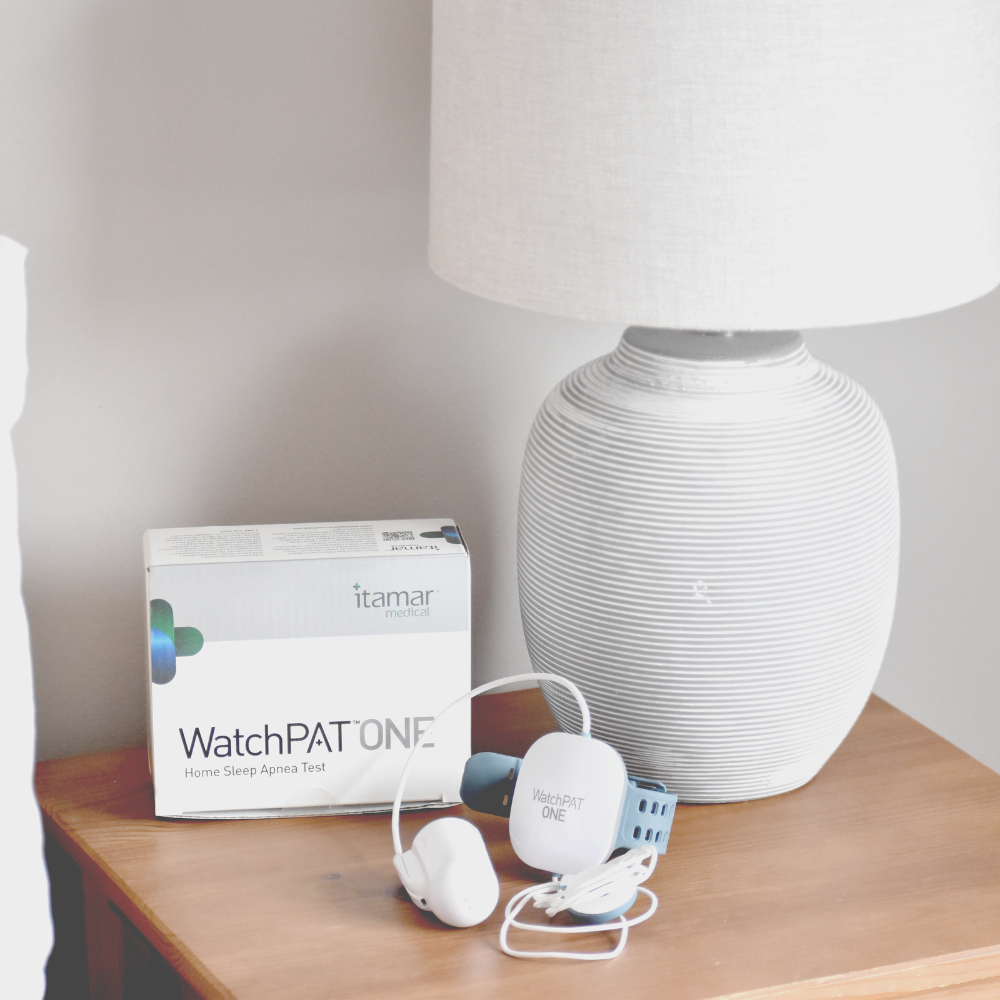
Sleep Apnoea Test
Sleep Apnoea is the most common cause of choking in sleep.
If you regularly experience choking or gasping during sleep take our at-home Sleep Apnoea Test.
Choking in sleep comorbidities
Obstructive Sleep Apnoea is one of the most prevalent reasons for choking or gasping in sleep. Coexisting conditions associated with OSA include high blood pressure, cardiovascular disease, type 2 diabetes, obesity, Alzheimer’s and GERD. These health comorbidities can have a detrimental effect on a person’s health and well-being.
The acid reflux from GERD can irritate the throat, affecting the quality of someone’s sleep over time, leading to OSA.
Are there any remedies to help prevent choking in sleep?
Specific treatment methods exist; however, some products and lifestyle adjustments can also help prevent you from waking up choking.
Lifestyle adjustments to stop choking in sleep
- Changing your sleep position: Your chosen sleep position can impact the quality of your sleep and the risk of choking. Sleeping on your side is one way to keep your airway open during sleep. Sleeping on your back or stomach can increase the risk of choking, as the tongue and soft tissues in the throat can block the airway.
- Head position: Elevating your head can help reduce the likelihood of choking, especially if it’s due to acid reflux.
- Avoid sedatives: Alcohol and certain medications are sedatives that can relax the muscles in the throat, increasing the risk of choking. While sedatives can be helpful, they should be used with caution and under the guidance of a healthcare provider. Sedatives can have a range of side effects, including drowsiness, dizziness, impaired coordination and memory problems. In some cases, sedatives can also increase the risk of choking during sleep.
- Quitting smoking: Smoking harms your lungs and air passages, making it harder to breathe and raising the chance of choking or struggling for air during sleep. If you smoke and find yourself choking at night, stopping smoking is crucial to lower this risk and other health issues. Quitting smoking can lessen swelling in the airways, boost lung function, and cut the risk of breathing problems leading to choking. It can also ease acid reflux and improve both breathing and digestion.
- Losing weight: Excess weight around the neck increases the risk of Obstructive Sleep Apnoea and GERD. Losing weight with diet and exercise can lower the risk of choking at night, strengthen throat muscles, and reduce the severity of OSA and acid reflux.
Products to stop choking while sleep
Various products are available that may help reduce the risk of choking during sleep and the symptoms associated that can cause choking during sleep.
Positional Sleep Therapy
Many people use positional therapy as an alternative to a CPAP machine.
Positional therapy is a type of treatment that helps you change your sleeping position to keep your airway open and maintain normal breathing. The devices keep you on your side during the night. Sleeping on your side can keep the tongue and soft tissues in the throat from blocking the airway.
You could consider the Somnibel positional sleep therapy trainer – a small vibrating device worn on the forehead. This small medical device gently vibrates when the user sleeps on their back, encouraging them to roll onto their side.
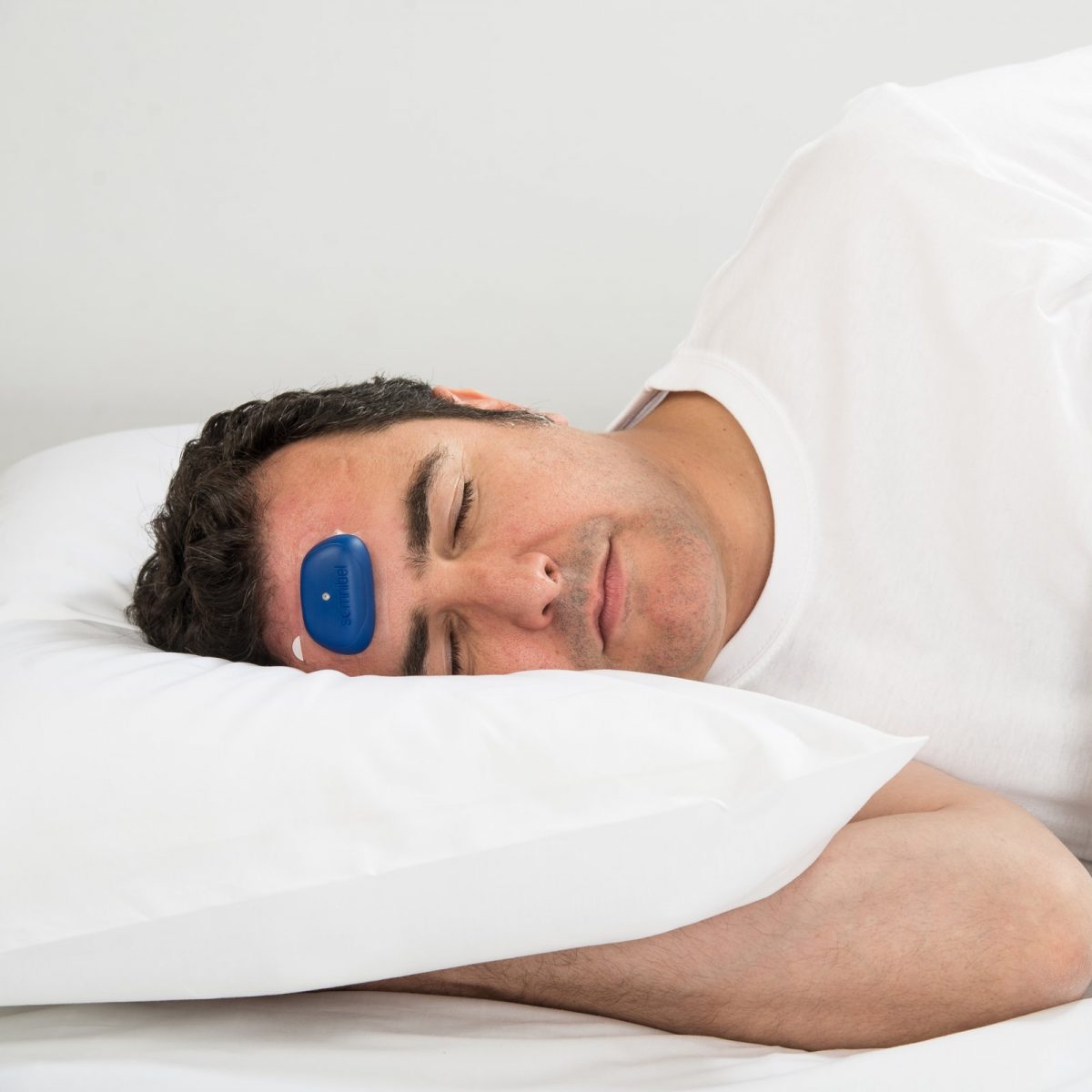
Oral Appliances
Oral appliances, mouthguards or mandibular advancements are devices worn in the mouth to help keep the airway open. They fit into your mouth, covering your teeth comfortably like a gumshield.
They gently position your lower jaw forward to reduce the risk of an obstruction causing you to choke. They also help to prevent snoring and OSA.
You can purchase these devices online or visit your dentist to have one made.
Could choking while sleeping be Sleep Apnoea?
If you experience frequent choking in your sleep and waking up gasping for breath, there is a high chance you have Obstructive Sleep Apnoea (OSA). Choking in sleep is one of the most common symptoms of OSA. Those suffering from this condition may also find themselves choking on their salvia or choking on acid reflux.
Other Common Sleep Apnoea Symptoms include:
- Excessive daytime sleepiness
- Loud and constant snoring
- High blood pressure
- Depression and anxiety
- Morning headaches
- Difficulty losing weight
If you are experiencing symptoms, you need to take a Sleep Apnoea test. Our In-Home Sleep Test will confirm if you have OSA in 2 working days.
Intus Healthcare Advice: OSA is treatable in almost every case but must be confirmed by a doctor or a sleep technician before treatment or equipment can be purchased.
If you would like any advice, please contact us or call 0800 024 8050.
If you would like any advice, then please contact us or call on 0800 024 8050.
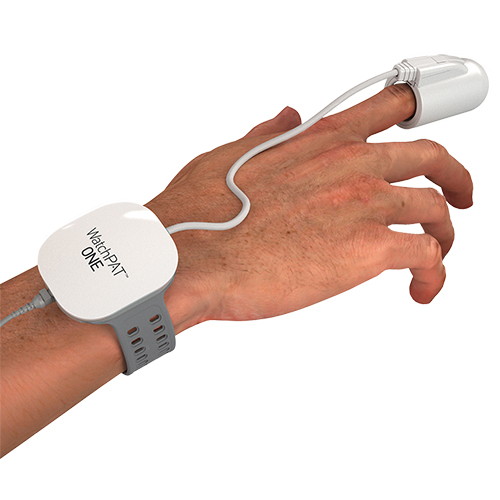
In-Home Sleep Study
An In-Home Sleep Study provides a quick, convenient and affordable way to diagnose Sleep Apnoea. The most common symptom is choking while sleeping, so a sleep test can help determine if this is the cause. All studies are independently analysed by experienced NHS-qualified sleep professionals and use the WatchPAT recording device for unrivalled accuracy.

